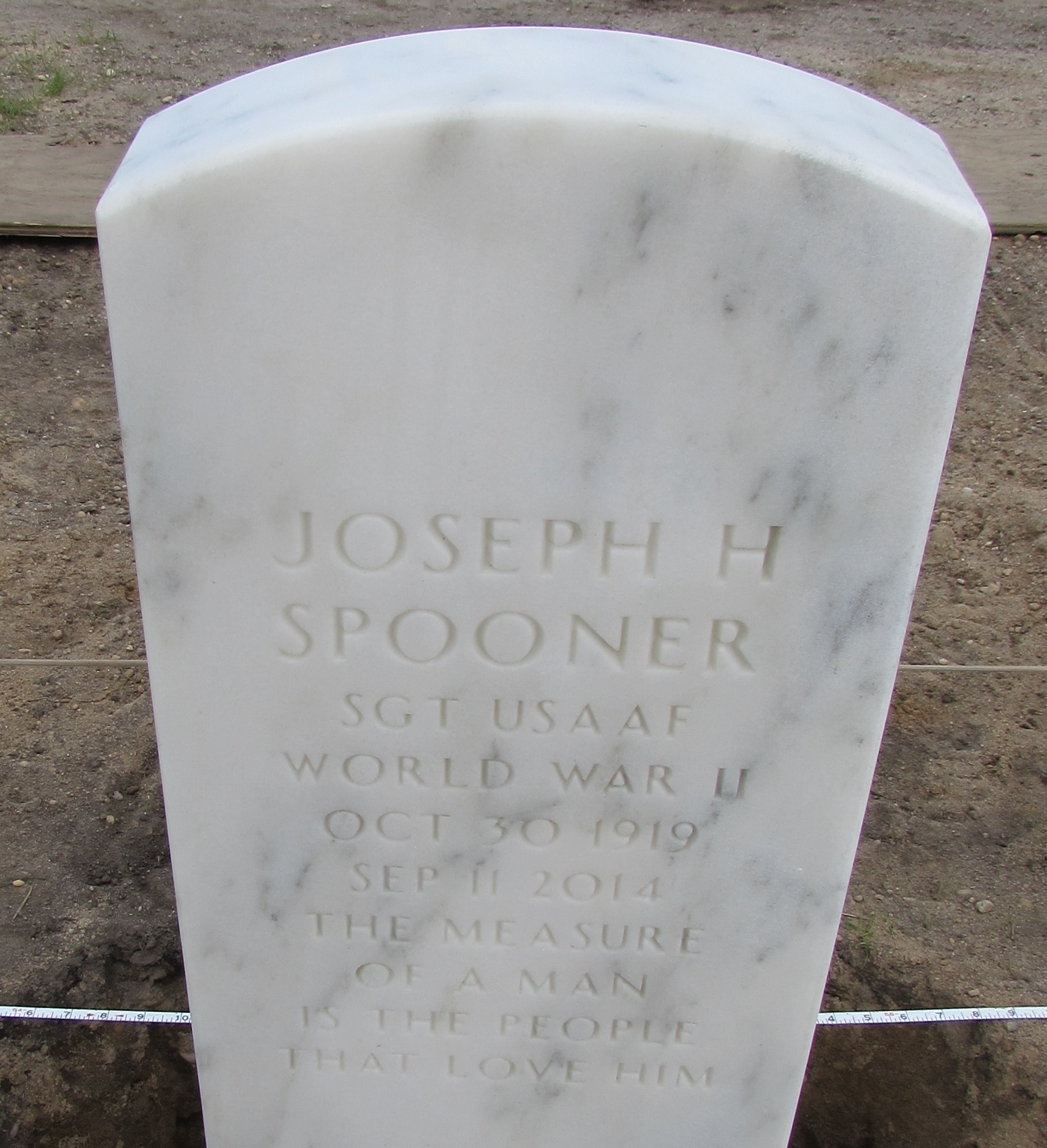CELEBRATING THE LIFE OF HAR- LEM’S TUSKEGEE AIRMAN JO- SEPH HERMAN SPOONER
HON. CHARLES B. RANGEL
OF NEW YORK
IN THE HOUSE OF REPRESENTATIVES
Tuesday, December 2, 2014
Mr. RANGEL. Mr. Speaker, I rise today to celebrate the life of Tuskegee Airman Joseph Herman Spooner, a life-long resident of the Village of Harlem. As noted by the family: On September 11th, 2014, America surrendered a living legend to the annals of Black American history. Inextricably intertwined to the impor- tance of this day ‘‘September 11th’’ in Amer- ican history, a Tuskegee Airman at 94 years old, has passed over.
September 11 reminds all of us every year that ‘freedom is not free’ and the strength of our nation depends on men and women, such as Joe Spooner, a decorated World War II original member of the 99th Fighter Squadron/ 332 Fighter Group stationed out of Tuskegee, Alabama.
Joseph Spooner was born on October 30th, 1919 to Joseph and Georgianna Spooner. Jo- seph was hilarious and loved to play jokes on people. He was high spirited and the life of the party. He had 6 children and three generations of grandchildren. He attended PS 179 Ele- mentary School, PS 165 Robert E. Simon, and graduated from Dewitt Clinton High School in which he excelled in academics and athletics. He loved to play and watch sports. In his early years, he played Semi-Pro Basketball on a team called the Columbians.
At the time he was drafted Joseph Spooner was a freshman at The City College of New York. Having played with the likes of Negro Basketball League legend John Issacs and ‘‘Pop’’ Gates of the original Harlem Globe- trotters he made his family proud qualifying to pursue a college education during such a ra- cially charged and segregated time period. America in the 1940’s, was unforgiving for people of color, it was an impossible dream come true, yet a dream deferred. Joseph Spooner left college, abandoning a basketball scholarship to serve his country.
Joe enlisted into service in 1942, and in 1943 this Black American hero was commis- sioned for duty with the Tuskegee Airmen. On April 1943, the 99th Fighter Squadron in their P–47 Thunderbolt fighters went into combat bound for North Africa, where it would join the 33rd Fighter Group and its commander, Colo- nel William W. Momyer. Given little guidance from battle-experienced pilots, the 99th’s first combat mission was to attack the small stra- tegic volcanic island of Pantelleria in the Medi- terranean Sea to clear the sea lanes for the Allied invasion of Sicily in July 1943. The air assault on the island began on 30 May 1943. The 99th flew its first combat mission on June 2, 1943. The surrender of the garrison of 11,121 Italians and 78 Germans due to air at- tack was the first of its kind.
The 99th moved on to Sicily and received a Distinguished Unit Citation for its performance in combat led by Col. Benjamin O. Davis, Jr., Commander of the Tuskegee Airmen 332nd Fighter Group. Though subject to racial dis- crimination, both at home and abroad, the 996 pilots and more than 15,000 ground personnel
who served with the all-black units would be credited with some 15,500 combat sorties and
earn over 150 Distinguished Flying Crosses for their achievements. With over 200 combat missions the Tuskegee Airmen did not lose a single bomber. They did everything in their power to protect and shield the bombers.
As American history has now recognized the heroism and amazing exploits and air bat- tles that took place in the skies over Europe by the 99th Fighter Squadron/332 Fighter Group, Joe as Armorer may have had the most important role by which he was respon- sible for loading the fighter planes with ammu- nition. In 2006, I introduced legislation to honor the Tuskegee Airmen with the Congres- sional Gold Medal. In March of 2007, Tuskegee Airman Joseph Herman Spooner re- ceived the Congressional Gold Medal of Honor from President George W. Bush
Great men, like our beloved Tuskegee Air- man Joseph Herman Spooner are temporary gifts we have in this world, but their accom- plishments and achievements are far remem- bered and forever lasting. Mr. Speaker, I ask my distinguished colleagues to join me in cele- brating the life of Tuskegee Airman Joseph Herman Spooner.

PRIVATE CITIZENS SUPPORTING AMERICA'S HERITAGE
American
War Memorials Overseas, Inc.
War Memorials Overseas, Inc.
Spooner Jopseph Herman
Name:
Jopseph Herman Spooner
Rank:
Staff Sergeant
Serial Number:
Unit:
Tuskegee Airmen
Date of Death:
2014-09-11
State:
New York
Cemetery:
Calverton National Cemetery Calverton, Suffolk County, New York
Plot:
Section 64 Site 3874
Row:
Grave:
Decoration:
Congressional Gold Medal
Comments:
